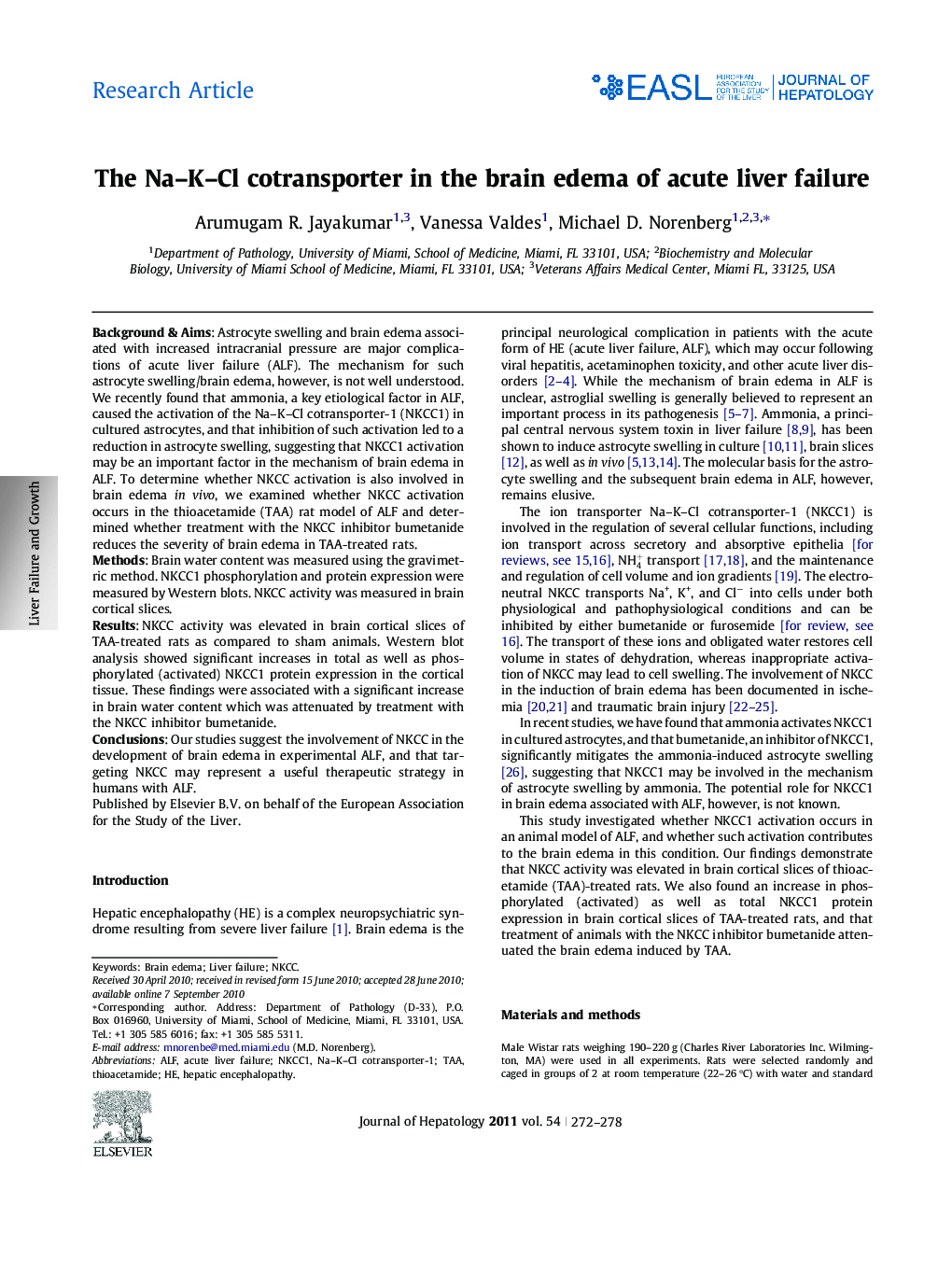| Article ID | Journal | Published Year | Pages | File Type |
|---|---|---|---|---|
| 6109056 | Journal of Hepatology | 2011 | 7 Pages |
Background & AimsAstrocyte swelling and brain edema associated with increased intracranial pressure are major complications of acute liver failure (ALF). The mechanism for such astrocyte swelling/brain edema, however, is not well understood. We recently found that ammonia, a key etiological factor in ALF, caused the activation of the Na-K-Cl cotransporter-1 (NKCC1) in cultured astrocytes, and that inhibition of such activation led to a reduction in astrocyte swelling, suggesting that NKCC1 activation may be an important factor in the mechanism of brain edema in ALF. To determine whether NKCC activation is also involved in brain edema in vivo, we examined whether NKCC activation occurs in the thioacetamide (TAA) rat model of ALF and determined whether treatment with the NKCC inhibitor bumetanide reduces the severity of brain edema in TAA-treated rats.MethodsBrain water content was measured using the gravimetric method. NKCC1 phosphorylation and protein expression were measured by Western blots. NKCC activity was measured in brain cortical slices.ResultsNKCC activity was elevated in brain cortical slices of TAA-treated rats as compared to sham animals. Western blot analysis showed significant increases in total as well as phosphorylated (activated) NKCC1 protein expression in the cortical tissue. These findings were associated with a significant increase in brain water content which was attenuated by treatment with the NKCC inhibitor bumetanide.ConclusionsOur studies suggest the involvement of NKCC in the development of brain edema in experimental ALF, and that targeting NKCC may represent a useful therapeutic strategy in humans with ALF.
